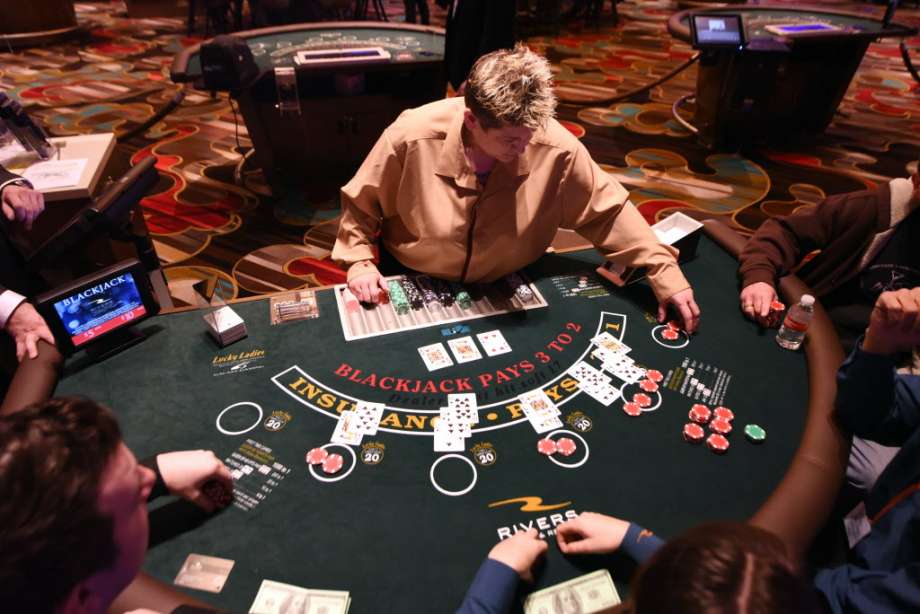As poker players playing for fun, the equations, numbers, and universal laws all attract individuals, at least a little. Here are some interesting ones found for you in this article. Such figures, however, do not mean winning is an impossible mission. It may just be harder than it seems, unless you already have the seven essential qualities to become a good player, as discussed below in this article to help you become a successful poker player at agen bet88.
Top Qualities That Make A Successful Poker Player
Trust in oneself. This quality is essential when you are currently playing at the table as either an advance or a beginner poker player, and the best performers are usually people with better self-confidence. Nothing is better than experience to develop strong self-esteem. The more you have experienced situations, the more comfortable you are to make the right decisions. It is, therefore, necessary to continually practice and strengthen your knowledge in order to build this self-confidence that will quickly lead you at the poker tables in the face of difficult situations.
Discipline. A good player can handle his bankroll. He never plays at limits that could jeopardize the health of his bankroll. He is cautious and waits before going to a superior limit until he has the requisite bankroll. In managing his money, he must be disciplined and avoid taking reckless risks that may only cause further damage. You must also be rigorous when it comes to managing his emotions and doesn’t let a lousy sequence’s frustration or a good one’s joy change his ways. Altogether, he remains down-to-earth, capable of managing his gains or losses without changing his mood. He also has no regrets to leave a session when nothing works appropriately for him, without continuing to recover his damages.

The centre of the mind. The difference between a player that wins a little and a player that wins a lot is often the ability to pay attention to details. Focusing on the way your opponents play is essential: it will allow you to identify and take advantage of their weaknesses during the next confrontations. Most of the time, small quantities, often one or two big blinds, you can easily steal from them! As wise men say, you’re making millions of dollars! In order to take advantage of these various opportunities, you must remain focused at all times.
Skills in mathematics. We always come back to the game’s mathematical aspect; we can’t disregard it, sadly. Consider it and do everything you can to assimilate it. Many players are more confident with statistics than others, but the underlying odds for all remain the same. The player who knows them is going to win the advantage over those who don’t control them. There are plenty of documents available on this subject; all you have to do is try to find and read them! By the way, hard calculations are not being required for each hand. Often you will see that strong guesswork skills are enough.
Don’t surrender. You have to put a lot of effort into being a good poker player and spend a lot of time. If you want to play 2 or 3 hours a week to become a great player, the process will be longer than if you spend more time, it’s logical. If you meet poor sequences, don’t give up, above all, and always keep your head up. In terms of time and effort to improve, you have to persevere. A self-learner will be better at managing than someone who expects every secret to being told. Then you must always think about your strategies, about your opponents, and identify ways to improve.
Comprehend the factor of luck. Luck is an aspect of poker. It’s a reality, not a fatality. So, how can one get rid of its impact? The answer is understanding and accepting poker is a game you’re playing with a long-term strategic approach. In a match, we all struggled as our side had 90% of the chances of winning and finally collapsed. If you’re in such a situation, you’re going to win 90% of the time, and you’re going to lose 10% of the time. If you only think of single loss episodes, you don’t think of long-term losses. You forget that wins will ultimately highly reward these unfortunate losses. Luck has only a short-term impact with poker. Your mission is to position yourself in situations of profit-making and to encourage Lady Luck to do her job. You’ll see in the long run that she’s not going to betray you.
Be consistent. The best poker players are compatible, and when they feel ready to fight their A Game, they start playing. Let us describe it in a nutshell as the mood that you need to adopt in order to play your best poker. For poker, this is to be consistent: play if you feel good. You should only play if you feel like a warrior, mentally prepared, focused, self-confident, fresh and disciplined, coming to the battlefield. You have to be in top shape in a few words. You have to master your emotions, as well. Understand how to avoid negative responses when you are feeling weak beats.
Conclusion
Once again, your goal is to play only if you are in a good mood and are able to recover whatever the circumstances are quick. Over time and hard work, all these things can get changed. You need to be able to stand back and evaluate yourself first. There’s always room for improvement with poker. Whether emotionally or strategically. You’ve got to practice again and again. Remains to see how you can control your emotions through long downswings. From this article’s point of view, this is the hardest thing in the life of a professional poker player.




